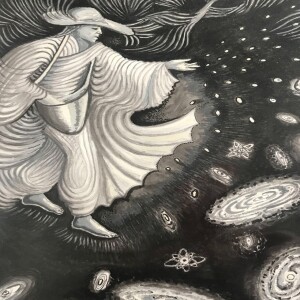
- Podcast Features
-
Monetization
-
Ads Marketplace
Join Ads Marketplace to earn through podcast sponsorships.
-
PodAds
Manage your ads with dynamic ad insertion capability.
-
Apple Podcasts Subscriptions Integration
Monetize with Apple Podcasts Subscriptions via Podbean.
-
Live Streaming
Earn rewards and recurring income from Fan Club membership.
-
Ads Marketplace
- Podbean App
-
Help and Support
-
Help Center
Get the answers and support you need.
-
Podbean Academy
Resources and guides to launch, grow, and monetize podcast.
-
Podbean Blog
Stay updated with the latest podcasting tips and trends.
-
What’s New
Check out our newest and recently released features!
-
Podcasting Smarter
Podcast interviews, best practices, and helpful tips.
-
Help Center
-
Popular Topics
-
How to Start a Podcast
The step-by-step guide to start your own podcast.
-
How to Start a Live Podcast
Create the best live podcast and engage your audience.
-
How to Monetize a Podcast
Tips on making the decision to monetize your podcast.
-
How to Promote Your Podcast
The best ways to get more eyes and ears on your podcast.
-
Podcast Advertising 101
Everything you need to know about podcast advertising.
-
Mobile Podcast Recording Guide
The ultimate guide to recording a podcast on your phone.
-
How to Use Group Recording
Steps to set up and use group recording in the Podbean app.
-
How to Start a Podcast
-
Podcasting
- Podcast Features
-
Monetization
-
Ads Marketplace
Join Ads Marketplace to earn through podcast sponsorships.
-
PodAds
Manage your ads with dynamic ad insertion capability.
-
Apple Podcasts Subscriptions Integration
Monetize with Apple Podcasts Subscriptions via Podbean.
-
Live Streaming
Earn rewards and recurring income from Fan Club membership.
-
Ads Marketplace
- Podbean App
- Advertisers
- Enterprise
- Pricing
-
Resources
-
Help and Support
-
Help Center
Get the answers and support you need.
-
Podbean Academy
Resources and guides to launch, grow, and monetize podcast.
-
Podbean Blog
Stay updated with the latest podcasting tips and trends.
-
What’s New
Check out our newest and recently released features!
-
Podcasting Smarter
Podcast interviews, best practices, and helpful tips.
-
Help Center
-
Popular Topics
-
How to Start a Podcast
The step-by-step guide to start your own podcast.
-
How to Start a Live Podcast
Create the best live podcast and engage your audience.
-
How to Monetize a Podcast
Tips on making the decision to monetize your podcast.
-
How to Promote Your Podcast
The best ways to get more eyes and ears on your podcast.
-
Podcast Advertising 101
Everything you need to know about podcast advertising.
-
Mobile Podcast Recording Guide
The ultimate guide to recording a podcast on your phone.
-
How to Use Group Recording
Steps to set up and use group recording in the Podbean app.
-
How to Start a Podcast
-
Help and Support
- Discover

In this last episode of this miniseries I give Jung’s main argument and its pros and cons.
My feelings about the difficulties of the work are as follows:
Firstly, relevance. How much can it offer the modern world?
Secondly, isolationism - its removal from the other analytic disciplines.
Thirdly, certain inconsistencies which may confuse the reader.
Fourthly, contradiction - whether the archetype of the Self is the totality or a specific archetype.
Fifthly, the inherent difficulty of the text.
Some of its strengths are as follows:
1: Its passion and tremendous personal conviction.
2: Its roots in childhood experiences (visions, dreams).
3: Jung speaks with many voices, as it were out of the depth of many esoteric traditions.
4: The audacity of the text
5: Jung uses a new voice – that of archetypal psychology combined with mythology and gnosticism.
6: Answer to Job reinforces Jung’s impact on the practice of psychotherapy.
7: Answer to Job has a deep theological critique of Christian and Judaic civilizations.
8: Jung insisted on the dangers of an apocalypse in our times.
9: Jung insists on the overarching metaphysical dimension to human existence.
More Episodes
 2019-06-01
2019-06-01
 1.9k
1.9k
 2019-05-18
2019-05-18
 1.9k
1.9k
 2019-05-04
2019-05-04
 1.8k
1.8k
 2019-04-20
2019-04-20
 1.8k
1.8k
 2019-03-09
2019-03-09
 1.8k
1.8k
 2019-01-26
2019-01-26
 1.6k
1.6k
 2019-01-19
2019-01-19
 1.9k
1.9k
 2019-01-12
2019-01-12
 855
855
 2019-01-05
2019-01-05
 1.2k
1.2k
 2018-12-29
2018-12-29
 1.3k
1.3k
 2018-12-08
2018-12-08
 1.4k
1.4k
 2018-12-01
2018-12-01
 1.2k
1.2k
 2018-11-24
2018-11-24
 1.3k
1.3k
 2018-11-17
2018-11-17
 1.5k
1.5k
Create your
podcast in
minutes
- Full-featured podcast site
- Unlimited storage and bandwidth
- Comprehensive podcast stats
- Distribute to Apple Podcasts, Spotify, and more
- Make money with your podcast
It is Free
- Privacy Policy
- Cookie Policy
- Terms of Use
- Consent Preferences
- Copyright © 2015-2025 Podbean.com



